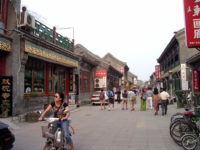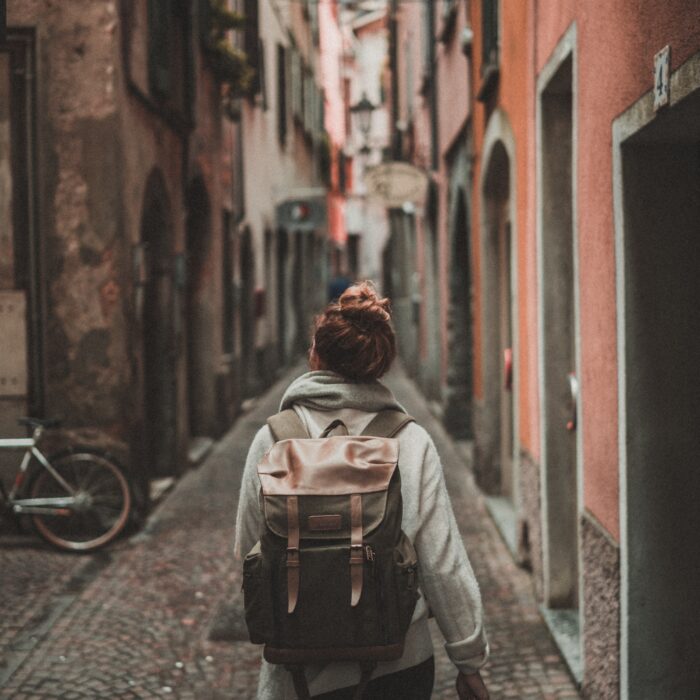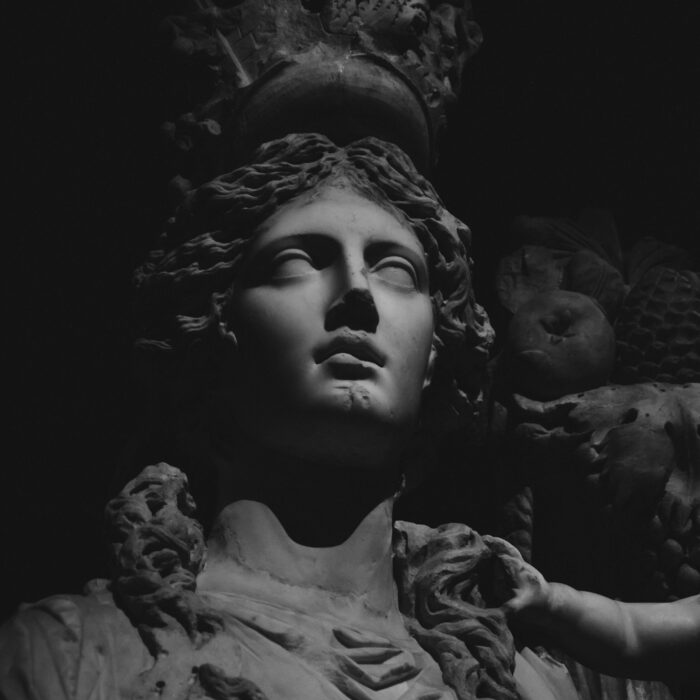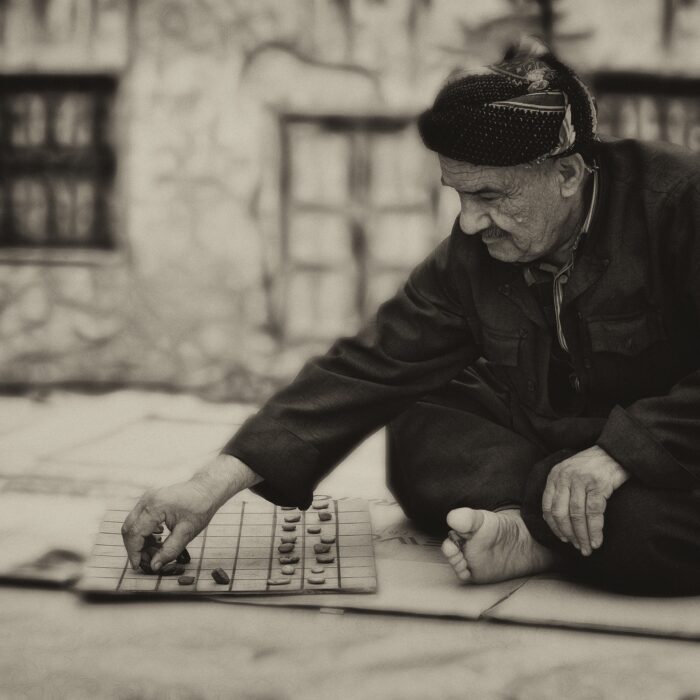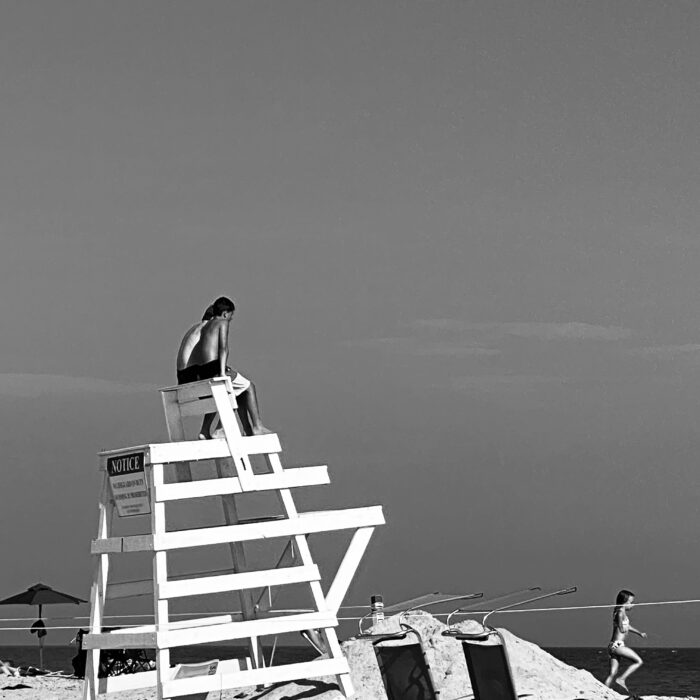You have no items in your cart. Want to get some nice things?
Go shoppingI arrived in Beijing at the height of the summer. The view from the taxi’s window was familiar – there were a few more cars than before, but dust still covered everything, reducing new Audis and antique VWs to the same metal ghosts.
My driver was singing along to a love ballad on the radio, his falsetto ruined by cheap tobacco. I smiled from where I sat in the back seat, my shirt already soaked through with sweat. So much had happened in the three years since I’d left China, but it melted away when the plane touched down, as if the flight had travelled through time.
In one of those coincidences suggesting cosmic design, The Carpenters came on the radio with Yesterday Once More.
“Very good,” the driver said, pointing at the radio, and smiling back at me.
“Yes,” I said, leaning forward and putting my face next to the grimy Perspex divider. “Very good.”
I was heading back to the small city of Xingtai, where I’d taught English for a year at a university. At the time, I hadn’t had the slightest inclination to stay on for longer. Those 12 months had burnt out my circuits and left me completely frazzled. I hadn’t particularly wanted to go home to England; I’d just wanted to get away from China.
Somewhere along the line, perhaps even just a few months after getting back, I’d started to feel a strange sensation of home-sickness. Just as you only feel a mosquito’s bite once it’s flown, China had got under my skin without me even being aware of it. I watched a documentary set in Beijing and smelt the streets they showed on screen, heard the voices in the background calling out for me. I felt exiled, as if China was a second home that I’d abandoned. The longing to return built steadily, until one summer I found myself with three months of leisure and enough money for a plane ticket. I messaged my old employers, asking about the possibility of them letting me stay in my old apartment. I was astonished when they agreed. After so long, I was going back.
I dozed on the train from Beijing West, thinking about all the things that had made my life in Xingtai. I’d kept in contact with my co-teachers, but my student’s subsequent lives were a mystery. The last time I’d heard from one of them they’d been working in a factory in Shenzhen and were expecting a baby. I felt a little pang of guilt, though it seemed natural that we’d fallen out of touch. We’d all known that my presence in their lives was temporary, and we’d made the most of it while it was there.
What I missed most was the place, especially the area around my apartment. There had been a market a minute’s walk away from my front door, and it was there that I felt most at home. I could still see all the familiar faces – the gap toothed grandma selling knock off clothes, the guy in an old army jacket ladling black broth into plastic cups, the bicycle repair man surrounded by broken pedals, the tailor and her Soviet machine; a whole cast of characters acting out their lives in a muddy alley, offering all the services anyone could need for a pocketful of change. It all came back in a haze, like the clouds of steam that used to rise from the noodle stand, carrying everywhere the peppery scent of coriander.
I’d missed the street food in the market more than anything. My favourite lunchtime treat had been a rou jia mo, known in phrasebook speak as a Chinese Hamburger. It’s a misleading name. Instead of questionable beef, the Chinese Hamburger contains tender chopped pork, stewed in soy sauce and 20 spices. Instead of a bog-standard bun, the meat is held within crisp, unleavened flatbread, salty and fresh from a clay oven. There’s no lettuce, tomato, or gherkin in a Chinese Hamburger, no red or yellow sauce.
I’d bought my rou jia mo from a married couple, whose stall was on the back of a tricycle. The speed with which they prepared the food was miraculous, made even more wonderful by their apparent lack of effort. The wife would knead the raw dough into perfect white mounds, and then lift the lid off the oven and whisk out the cooked bread, refilling it with raw dough in one continuous movement. At the same time, with a dreamy attitude, her husband would ladle a hunk of meat out of the blackened pot and set to chopping it with his cleaver, all the while gazing into the distance and chatting idly with his wife. She chided him frequently for his slowness (to no obvious effect), though a smile always lurked at the corner of her mouth, a smile that spoke of a long-suffering patience that had ripened to love. I wished I’d been able to say a proper goodbye to them, and to thank them for feeding me for 12 months, but even after a year my Chinese hadn’t progressed much beyond single words and pointing.
I’d searched in vain for rou jia mo in Chinatowns around the world. Like a weird inversion of Proust’s madeleine, whenever I thought of China I could taste them, and the desire to eat one again was as strong as the smokers need for nicotine. Now, finally, I was getting my chance.
We arrived at Xingtai station, and I hailed a cab outside, surprised that I still remembered how to say the address. We pulled out into the traffic, horn blaring, and started on the old route home. Round the backstreets, onto the main road, under that bridge, round the square – it all came back to me. I got lost a couple of times, thrown by the building sites that broke the landscape like bomb craters, but soon enough a familiar building would appear. I sat bolt upright when we passed the park, for I’d knew we’d soon be there.
I paid the driver and nodded to the bemused guard at the Univeristy gates, then hurried through the campus, barely giving my old class rooms a glance. Groups of students eyed me in silence. I didn’t mind, I was so eager to sink my teeth into another Chinese Hamburger I would have walked through fire to get one.
I turned a corner and went by my old apartment, stopping to talk to a pair of kids with a rabbit in a plastic cage. My belly grumbled and I carried on, turning another corner and then stopping short.
A newly laid road, flat and white, stretched far into the distance. There were no cars on it; the destination was still under construction.
I retraced my steps, thinking I’d made a wrong turn. It was no use. The market was gone. I spotted the bicycle man squatting by the gate, still surrounded by broken pedals. He nodded to me and turned back to his work. Everyone else, including my rou jia mo couple, had disappeared. I wondered where they’d all gone. Had another market sprung up somewhere? Who could I ask to find out?
Over the road was a new shopping centre, its glass sides gleaming in the waning sun. My stomach grumbled again, demanding to be fed. I went into the shopping centre and waited with a bunch of students in the KFC. Looking around at families enjoying their ice creams and chicken fingers, I thought about a quote from The Philosophy of Andy Warhol, which I’d read on the flight over. Andy said that you can be just as faithful to a place as to a person. He’s right, but a place may not stay faithful to you.

About Kevin Baker
Kevin Baker is a writer and musician from the UK. His work has appeared in Adbusters, Litro and CHEAP POP, among others. He holds an MA by Research in English Literature, having completed a dissertation on the superchild character in science fiction. He currently lives in South Korea with his wife.

